Share
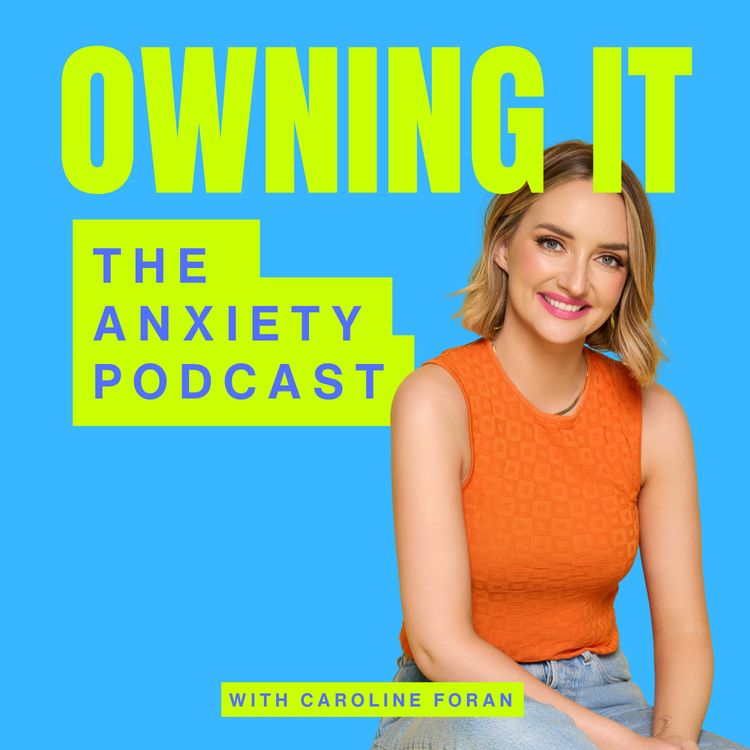
Owning It: The Anxiety Podcast
Why your therapist needs therapy
This week my guest is a psychologist and psychotherapist Dr Natalie Cawley who has just released a book called Just About Coping. It reads like a drama but it's her story, her own experience of anxiety while becoming a qualified mental health professional, and what she's learned from both sides of the therapy room. It's peppered with really helpful anxiety advice and Natalie makes it so easy for you to grasp the concepts. If you've ever been curious about the person behind the qualifications and the expertise, this is a great place to start. We talk about so many things from her story, to the impact of breakups and why these in particular can result in so much anxiety, experiences like dissociation, cognitive distortions, attachment and more. We also talk about how one type of therapy worked for me but didn't yield any results for her. You can support this podcast by sharing it with a friend or signing up to my Substack. Read my personal essays on Substack here with a 20% (lifetime) listener discount.
Order yourself (or for a friend) a copy of my new book, Everything I Wish I'd Known About Anxiety: A Roadmap out of the Overwhelm and Back to Yourself here
Follow me on Instagram @CarolineForan and @OwningItPodcast, on Tik Tok here
Subscribe to my weekly Substack here (not always anxiety related, often parenting related)
More episodes
View all episodes
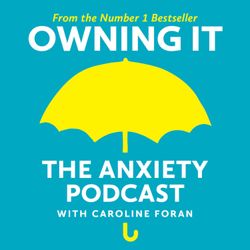
Owning It: The reality of anxiety
45:19|In the first episode of the anxiety podcast, host and author Caroline Foran shares a raw, unfiltered and unsexy account of her experience of anxiety, from childhood right through to her mid 20s, when the you know what really hit the fan. Word of warning: this episode is pretty bleak - it's not sugar coated - but there is light at the end of the tunnel. This episode lays the foundation before moving on to understanding what anxiety is, and introducing her Assess and Address technique for owning your anxiety.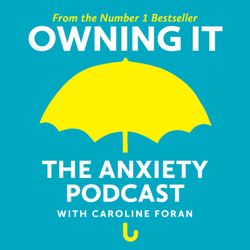
Owning It: Understanding and normalising anxiety
47:39|In this episode I introduce the Assess and Address technique for anxiety, and am joined by clinical psychologist Dr Clare Kambamettu. She talks SO much sense around anxiety. We unpack it, getting a better understanding of why we feel it and how normal it is and exactly what's happening in our body. This episode will help you to get some clarity on why you might be experiencing anxiety, as well as reassuring you that whatever you're feeling, for whatever reason - it's VALID. We also discuss Cognitive Behavioural Therapy and why that works for anxiety. Enjoy.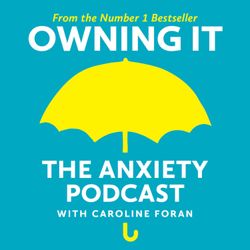
Owning It: How To Support Someone With Anxiety
41:17|Maybe you don't experience anxiety but maybe your partner or close friend or relative does; if so this is the episode for you. Barry is my husband and super reluctant podcast guest on this episode. He HATES having to do this but I damn well made him. We discuss the importance of normalising the anxiety, what to do and what not to do or say to someone who's struggling with anxiety and what it was like for him to go through this with me. He's not as much of a talker as I would be but I think his experience is important in the context of this series. I hope you enjoy it! Don't forget to subscribe and leave a review and read the books if you haven't already.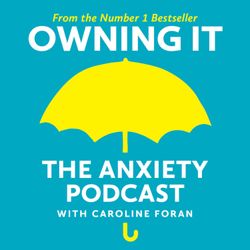
Owning It: Why we fear public speaking and how to break it with Pat Divilly
44:43|This week I'm joined by Pat Divilly for a brilliant discussion around the topic of public speaking. It was his biggest fear, it's one of mine - STILL! - and I know it's something that affects so many readers of both Owning It and The Confidence Kit. Pat Divilly is an author, public speaker and all round legend - he takes complex ideas and articulates them in a way that is just so easy to digest and I feel we are on the very same page when it comes to things like acceptance and working with ourselves rather than against ourselves. Pat also shares his own story of anxiety, along with chats about imposter syndrome and as is always my goal - we share some very practical tips and exercises to get you feeling a little bit less afraid at the prospect of public speaking - even if that just means speaking up in a meeting or at a social event. Pat doesn't claim to be fearless, and neither do I, but despite our fears and anxieties we can still forge ahead. Enjoy!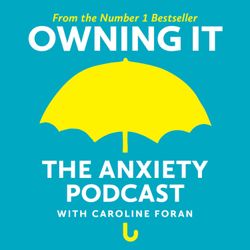
Owning It: Anxiety About Being Sick - with Georgie Crawford
40:58|In this week's episode of Owning It: The Anxiety Podcast, I go in the direction of physical health and the fear or anxiety about the prospect of getting sick or receiving a bad diagnosis. I'm joined by cancer survivor and breast cancer awareness champion Georgie Crawford who shares her story of getting sick with me, through the lens of mental health. The anxiety that went with it, the empowering moment of getting the diagnosis and taking action and how her experience has shifted her perspective on day to day anxieties and stresses. Georgie has some great advice and I do hope you enjoy. Please subscribe and review as always and know that the books are available to buy around the world on Amazon. Owning It - buy now The Confidence Kit - buy now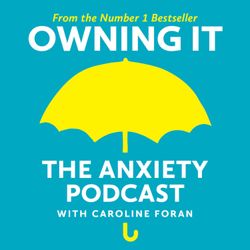
Owning It: Let's Talk About Anti Anxiety Medication with Dr Rosie Plunkett
52:03|For this episode, we will do a deep dive into the world of anti anxiety medication. Rosie is a psychiatrist who deals with a lot of patients presenting with anxiety symptoms. She helps me to breakdown the different kinds of medication, how anti-depressants work in treating anxiety, what you need to know about the first few weeks on medication and what you need to know about coming off it if you decide to do so. We also chat about the stigma that very much exists around medication - I personally felt that taking medication was a sign of weakness and I still struggle with worrying what people might think about the fact that I'm still on it. Whatever questions you have about anti anxiety medication should be answered here.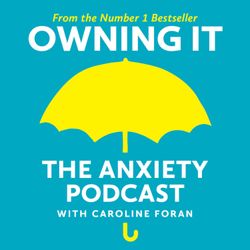
Owning It: Vogue Williams shares her experience of anxiety
31:58|So in among the experts with whom I will consult to get you the most practical advice and tools you need to own your anxiety, I also try to sit down with people who are just like me - not professionals when it comes to anxiety - but those who've experienced it from one end of the spectrum to the other, and can relate to how you're feeling as well as share their coping strategies. This week I am joined by Vogue Williams to talk about anxiety after a bad breakup, anxiety in a former partner when she didn't really understand it, and how having a baby has left her with no time to feel too anxious these days. We talk about her experience with medication and lots more. Please do subscribe and enjoy! PRE ORDER THE US VERSION OF OWN IT - MAKE YOUR ANXIETY WORK FOR YOU here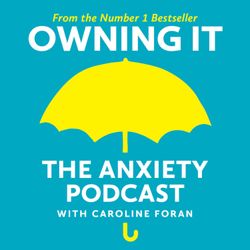
Owning It Bonus: Common Mind Traps With Day to Day Anxiety
13:50|I had some time to spare and rather than relax I recorded this quick little episode on the common mind traps that we might fall into that give rise to stress and anxiety in our day to day lives. For example, a big one is 'catastrophizing' (I'm using a 'z' in that word for US listeners). So maybe you're not really struggling to get your head off the pillow with anxiety, but maybe you find that there's a low level anxiety that's just kind of always there and getting slightly in the way of your life. If that's the case, you may be experiencing some of the common mind traps that we'll discuss. This is more of a dip into CBT which is one of my essential tools for managing and owning my anxiety on an ongoing basis. Pre order Own It here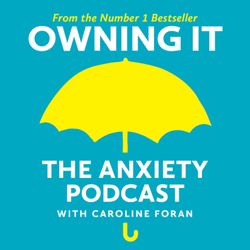
Owning It: Social Anxiety, Stammering and Self-Acceptance
50:02|In this episode, I am joined by my brother Daniel who experienced a social kind of anxiety brought on by his stammer. Daniel has had a stammer for as long as I can remember but I never knew quite how much it affected him and gave him anxiety until recent years (he's in his mid 30s now) because he simply didn't want to discuss it. To go from a fear of saying his name out loud to recording with me, he has come a long way and I'm so proud of him. I've learned so much from this episode about triumph in the face adversity and I hope you will too. RESOURCES - www.stammering.orgstammeringireland.iewww.mcguireprogramme.comtoastmasters.org